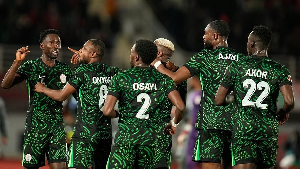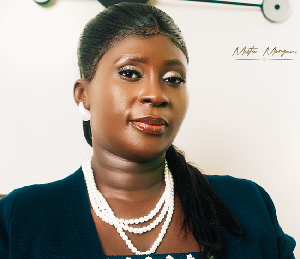Accra, Aug. 5, GNA - Mr Rex Peter Yeboah, Deputy Director of the Gaming Commission of Ghana, on Friday re-affirmed that Vodafone’s promotion dubbed “More Money” was a game of chance and not lottery as purported by the National Lottery Authority.
Mr Yeboah said the approval of the Commission was given to allow Vodafone Ghana to launch the promotion because it possessed all the characteristics of a game of chance regulated by the Gaming Act.
He said this at a press conference in Accra to state its position on the regulation of games of chance in the country.
Mr Yeboah said Section 72 of the Gaming Act of 2006 defined a game of chance to “include a game other than lotto in which participants in an anticipation of winning a reward on the results of the game which depends on luck and which cannot be determined before the end of the game, pay money for the right to participate in the game”.
He said the Commission’s objectives under the Gaming Act was to regulate, monitor, supervise and control games of chance in the country under section 3 (1) of the Act.
Mr Yeboah noted that since 2007, the Commission had been issuing permits to organizations to run promotions with elements of games of chance.
“This had been the practice until November 2010 when the NLA took steps to prevent the Commission from carrying out its mandate under the Act by filing a law suit against the Commission which is still pending in court.”
Mr Yeboah said the NLA’s press briefing that the Gaming Commission’s practice of issuing permits to organizations to run games of chance was illegal and that the Commission’s only statutory authority was to issue annual licence to companies in the business of operating games of chance was inaccurate.
He stressed that the NLA’s position that it had the authority to collaborate with bodies and institutions and to ensure transparency for the protection of subscribing consumers was contrary to the provisions of the Lotto Act 2006.
Mr Yeboah explained that it was only when they wanted to engage in games of chance that they might collaborate with such bodies and can do so in accordance with existing laws and not only on the strength of the Lotto Act.
He said if the NLA was interested in engaging in any form of games of chance, other than lotto, it must be prepared to come under the regulatory mandate of the Gaming Commission.
Mr Yeboah stated that the Commission had never given permits to organizations to run lotto or lottery and advised the public to seek authorisation from the Commission in promotions with the elements of game of chance.
Business News of Friday, 5 August 2011
Source: GNA












